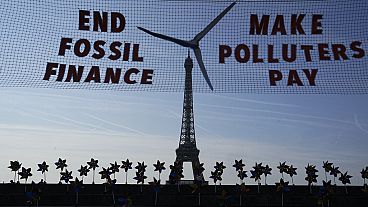WASHINGTON (Reuters) - The United States will not reach a trade agreement with the European Union if agriculture is not included, a senior U.S. Agriculture Department official told reporters on Thursday.
Ted McKinney, undersecretary for trade and foreign agricultural affairs, said he was highlighting common ground between the two sides during meetings with lawmakers, government officials and private industry in Brussels, Rome and Geneva.
Europe, a top U.S. trading partner, has offered to start negotiations with the United States about removing import duties on industrial goods, but those talks have not begun in earnest as the two sides argue about the issue of market access for agriculture.
Washington says it should be part of the talks, but the EU has not included agriculture in its mandate for the talks.
The discussions are part of a deal struck last year between European Commission chief Jean-Claude Juncker and U.S. President Donald Trump, under which the United States agreed not to impose punitive tariffs on EU car imports while the two sides worked to improve transatlantic trade ties.
"I do not think we will reach an agreement if agriculture is not included," McKinney told reporters on a teleconference during his visit to Brussels, citing concerns raised by U.S. lawmakers and Trump.
He further said the two sides were working "much more closely together than not" on the issue of modernizing and reforming the World Trade Organization.
The EU is worried that the United States has taken unilateral action against China on the issues of unfair state subsidies and forced technology transfers instead of going through the WTO, which Washington believes is an organization working on outdated rules that do not address modern trade challenges.
McKinney also said some European countries were expressing interest in acceptance of gene editing, a new technology that he said could sharply increase crop yields.
"I've been encouraged," McKinney said. "This is a technology that they don't want to miss out on. How they get there is very much to be determined. It is a not a fait accompli."
The Court of Justice of the European Union ruled in 2018 that gene-editing techniques are subject to regulations governing genetically modified crops, which will limit gene-editing in Europe to research, while barring its use in commercial crops.
McKinney said the United States had seen the value of the technology and stood ready to help the EU as it worked through issues surrounding the new technology.
Biotechnology and new farming practices could also help sharply reduce the greenhouse gas emissions, he said.
(Reporting by Andrea Shalal; Editing by Steve Orlofsky)



